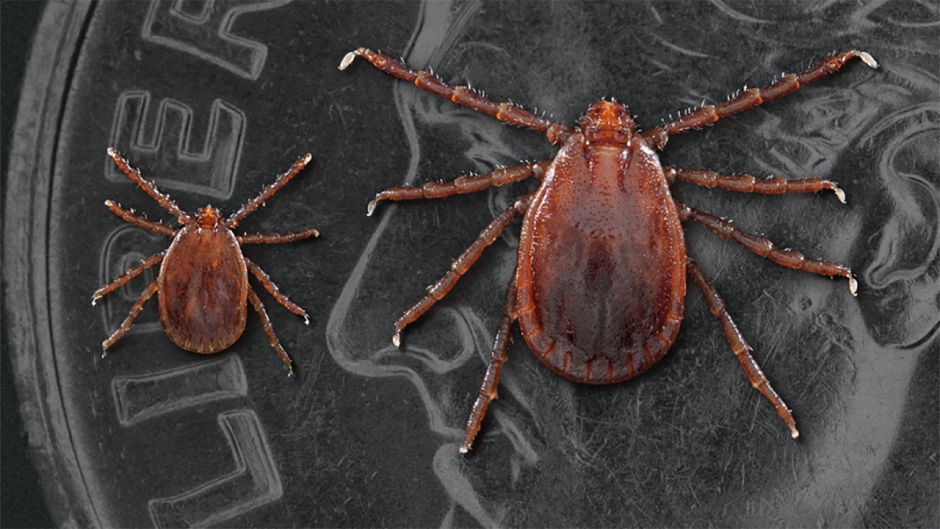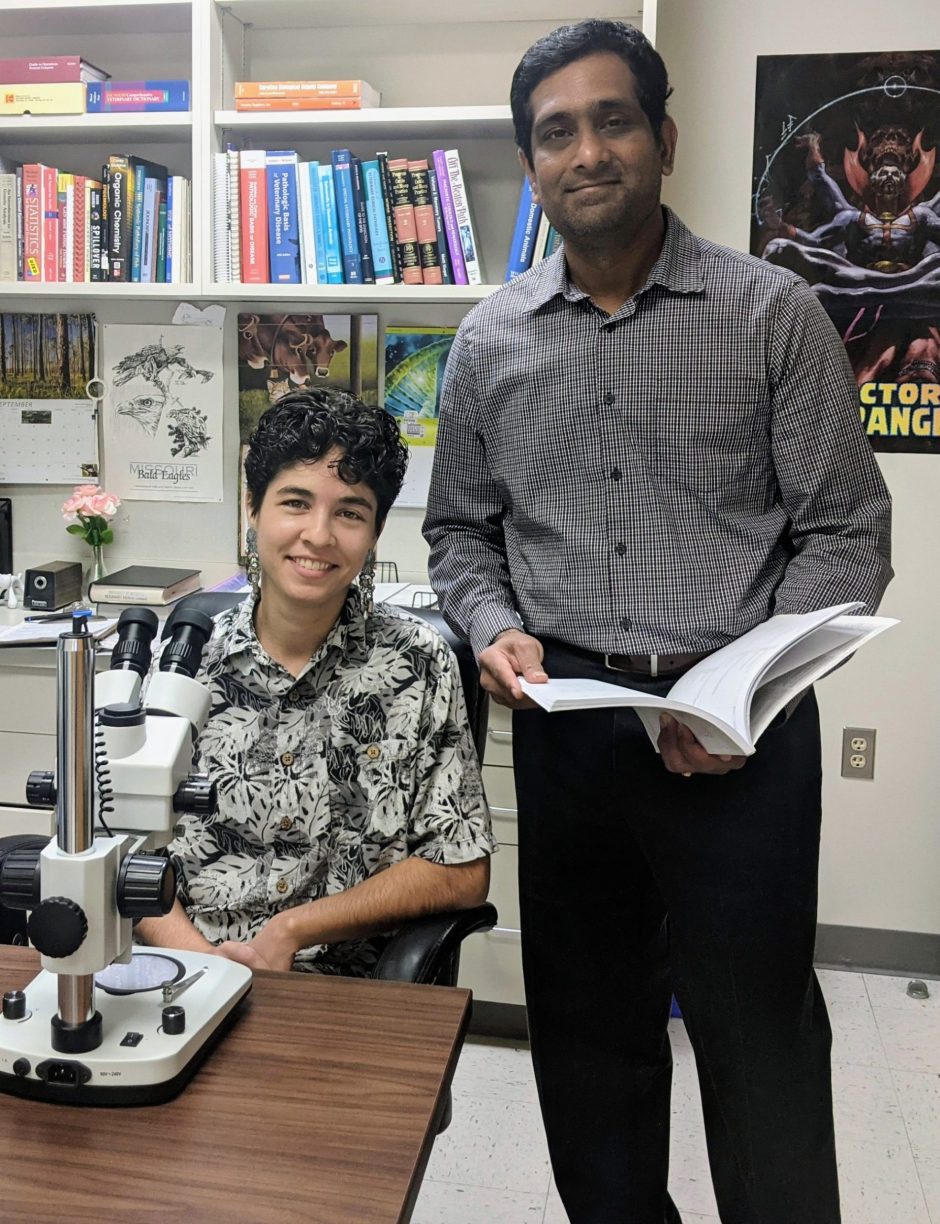
July 24, 2023
Contact: Brian Consiglio, 573-882-9144, consigliob@missouri.edu
Researchers at the University of Missouri College of Veterinary Medicine have recently discovered invasive longhorned ticks in Boone County, Missouri, for the first time. The discovery of the longhorned tick, which has already caused the loss of millions of dollars in agricultural revenue to livestock producers worldwide, indicates a potential looming problem for cattle health in mid-Missouri. This tick species can also potentially transmit a variety of pathogens to humans.
“These longhorned ticks have the potential to transmit theileriosis, a disease that kills red blood cells in cattle,” said Rosalie Ierardi, a clinical instructor at the MU Veterinary Medical Diagnostic Laboratory (VMDL) and doctoral student at the MU College of Veterinary Medicine, who last year discovered these same longhorned ticks in northern Missouri. “Symptoms of this infection in cattle could include weight loss, tiredness, weakness, jaundice and pregnancy loss, which all have economic consequences for cattle ranchers looking to sell their calves.”
The discovery in Boone County was made in late April by lerardi, who is mentored by Ram Raghavan, an associate professor in the MU College of Veterinary Medicine and an associate professor in the MU College of Health Sciences. The recent discovery is part of Ierardi’s doctoral dissertation studies.
Originally established in eastern Russia and Australasia, the region that comprises Australia, New Zealand and neighboring islands in the Pacific Ocean, the invasive longhorned tick was first noted outside quarantine in the United States in 2017 in New Jersey. Since then, they have spread throughout the Mid-Atlantic, New England and Midwestern regions, being officially detected in at least 19 states and counting.
“These discoveries help raise awareness for both veterinarians and Missouri livestock producers so that they can monitor the health of animals and make better informed decisions,” Raghavan said. “A combination of factors, including increasingly warming temperatures for ticks to thrive in and an increase in people engaging in outdoor activities in rural or suburban areas where ticks are more prevalent, have increased the rates of ticks transmitting pathogens to wildlife, people and their pets.”

While most ticks reproduce traditionally, female longhorned ticks can lay thousands of eggs asexually, or without the help of a male, which makes it easier for this species to quickly establish in new areas.
With an extensive background in public health, Raghavan has been tracking the spread of various species of ticks in the U.S. for 16 years. In a 2019 study, he predicted the potential geographic distribution of the longhorned tick, and so far, his predictions have turned into reality.
“The University of Missouri is a land-grant institution, and we remain committed to assisting Missouri veterinarians and Missouri cattle ranchers as they continue to monitor the health of their animals,” Raghavan said. “Unfortunately, it appears that these longhorned ticks are here to stay, and the more vigilant we can become in monitoring the situation as it worsens going forward, the better prepared we will be. We need to monitor these ticks long-term throughout the central Midwest, where critical information about the biology of ticks in general is lacking.”
Ierardi and Raghavan encourage Missouri livestock producers who notice weakness, tiredness, jaundice or pregnancy loss in their cattle to contact their local veterinarian or the MU VMDL for assistance with tracking down the causes for such signs.




